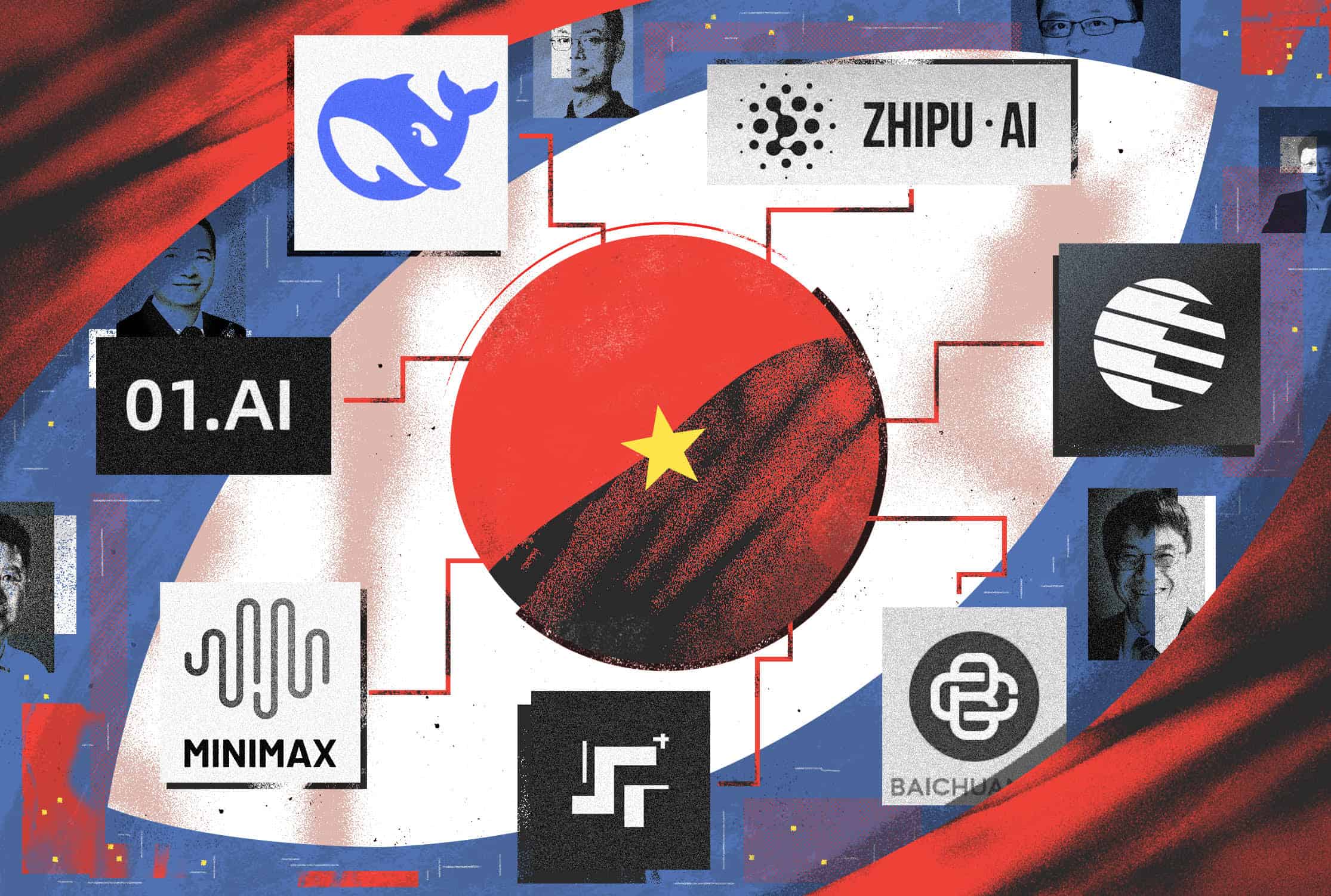Sue-Lin Wong is the South East Asia correspondent for The Economist, having previously reported for the magazine in China. Her first podcast series, The Prince, told the tale of the rise and ascendancy of Chinese leader Xi Jinping. More recently she has turned her attention to the lucrative yet brutal world of online scamming and how it has become a massive global industry. The result, an eight-part series entitled Scam Inc, is now available here. The Wire recently spoke to her about the aims and themes of the series: the following is an edited transcript of that conversation.

Illustration by Kate Copeland
Q: Can you start with an overview of the story you set out to tell in this podcast series?
A: I moved to Singapore about two years ago to start covering Southeast Asia for the Economist, and it immediately became clear to me that scams were one of the biggest stories on my beat. I remember going to Cambodia for a completely different story, and speaking to a bunch of Chinese investors in Sihanoukville, a coastal town that used to be a haven for backpackers and middle-class Cambodian families. When I showed up in 2023, it was full of construction, with Chinese investors building casinos, and also telling me they were in the internet industry.
I very quickly realized that actually they were all involved in online scams — in fact, everywhere I went in the region the story would come up in different ways, be it in Thailand or the Philippines or Cambodia. I started covering it in bits and pieces as part of my beat, but I soon realized this was a huge global story. I then read about a bank collapsing in rural Kansas, and heard rumors it was somehow connected to my beat and this story. That was when I became really interested in doing a bigger investigation, and trying to understand what I was seeing — not in a piecemeal way, but as a multi-billion dollar industry. I wanted to understand how the industry worked at a systemic level.

So while I very much came to the story as a Southeast Asia correspondent, I started looking at how it was connected to the U.S., and to Europe, and to money laundering; and then things like the role of the Chinese Communist Party, and the very sophisticated psychological manipulation employed by the criminals. It took me to all kinds of places, from the English Premier League to Mexican drug cartels. It was just so much more sprawling than I could ever have imagined.
You quite deliberately call the series Scam Inc, which gives a sense that this has now become an industry, and a global one at that. How did you come to that conclusion?
Many things we see in the world make more sense when we recognise them as industries. When I saw the rise of online scams, I thought to myself, I’m pretty sure this is also an industry: Criminals are ultimately driven by making a profit. I tested this hypothesis with my sources, and it became clear that this was the most useful framework to understand what I was seeing.
…the scammers [in China] have had many years of honing their scripts and perfecting their psychological tactics on mainland Chinese victims. These scams really started there.
What I discovered was it’s not that these criminals only do scamming. They previously might have been involved in drugs or prostitution or gambling. For all kinds of reasons, it became very lucrative for them to pivot to online fraud, and they’re willing to do whatever will make them money. In parts of Southeast Asia, there is a real blend of legitimate and illegitimate business too. During my reporting, I heard about people who got involved in the online scamming industry who were previously involved in property development, hotels, or even making Covid masks.They were very open to wherever they could make money.
| BIO AT A GLANCE | |
|---|---|
| AGE | 36 |
| BIRTHPLACE | Sydney, New South Wales, Australia |
Let’s talk about the roots of all of this in China, which you focus on in the fourth episode of the series. Can you first explain the phenomenon of ‘pig butchering’, what it is, and how it works?
It’s a very distinctive term and it can be jarring for many English-speakers, but that’s because it comes from Chinese slang. This is a scam that was perfected by mostly Chinese-origin criminals on mainland Chinese, and which then proliferated around the world. The idea is that the criminals will identify a target, fatten them up by building trust, using very sophisticated psychological manipulation — and then go in for the slaughter, and scam them.

So this is different from the scams that we all knew years ago, when the internet was first getting going, when people would receive emails from a fake Nigerian prince asking for money: It’s become so much more sophisticated than that.
Yes. When I started out on this story people would say “What? Why would you spend several months investigating scams?”, and I had to say, gone are the days of the obviously-fake Nigerian Prince e-mail con. What we are now up against is an incredibly predatory, sophisticated industry. One thing I’m hoping Scam Inc will do is reframe and help people understand that we’ve moved into a completely new age of scamming.
And it’s not just that the scams are much more sophisticated. It’s that we’ve just witnessed the biggest shift in modern history in how transnational crime works. Gone are the hierarchical mafias of powerful godfathers and tattooed criminals. In their place there is now a service industry. It’s much more helpful to think of this as a network rather than a pyramid structure: You have lots of different groups offering very specific parts of the scam supply chain. So it might be that one group is focused on kidnapping people, and taking them from Bangkok airport across the border into Myanmar. Then you’ve got another group that’s focused on uploading British SIM cards to iPhones that the criminals can use in Southeast Asia. Then you have another group that’s focused on one part of the money laundering puzzle.

So there’s been two really important shifts. The first is that it’s not just about ‘Nigerian prince’ cons anymore; the second is that these criminal networks, which are often of Chinese origin, don’t work like Italian mafias. They work as very decentralized networks — and that makes it much harder to take them on. It’s a very low-cost, low-barrier-to-entry industry. All you need is a couple of smartphones and an internet connection.
The other part of this is that while pig butchering is by far the most lucrative scam, these syndicates run all kinds of scams — again that gets back to the bottom line and the fact they’re willing to pivot to the path of profitability.

What sort of thing can happen to you when you’re ‘pig butchered’?
The most extreme case I saw was the collapse of a small bank in rural Kansas after the CEO was duped by a pig butchering scam. He ended up embezzling $47 million from his own bank; the bank collapsed, and he’s now in prison for 24 years. That’s really the through-line of the podcast, trying to understand what happened to him and why he did what he did.
But there’s so many tragic stories. It was a very difficult podcast to report because of all the horrors that I heard about, the suicides of people who fell victim to scams, and the ripple effects — how scams impact families and communities. In the tiny town where the bank collapsed, Elkhart — which has about 2,000 people — there were all kinds of implications for many of the residents in the area, who were all connected to the bank in some way. That story replicates itself over and over again for victims of scams around the world.
And of course you have the victims on the other side — those who are trafficked into scam compounds and forced to commit the scams. There’s a whole world of horror and tragedy there as well.
| MISCELLANEA | |
|---|---|
| FAVORITE BOOK | Little Women |
| BOOK REC | A Suitable Boy |
| FAVORITE FILM | Perfect Days |
| FAVORITE MUSIC | Mandopop |
| MOST ADMIRED | Thich Nhat Hanh |
How did the scams become so sophisticated, with people trafficked to these scamming compounds able to converse with someone in, say, rural America in such a convincing way?
Actually the answer lies in China, and the fact that the scammers there have had many years of honing their scripts and perfecting their psychological tactics on mainland Chinese victims. These scams really started there.
I remember being a journalist in Shanghai way back in 2015 when telecom fraud was huge, and I almost fell for a scam myself. The criminals who were doing telecoms fraud transitioned into online scams once smartphones became really prevalent. That’s the history that we need to understand in order to figure out what’s happening around the world today.

What was it about China that made it such fertile ground for this kind of scamming industry?
I guess there’s always been a lot of scams in China. But there are a couple of important factors in why China became such fertile ground. One was that online payments took off much more quickly in China than they did in the rest of the world.
There was also a class of criminals who originally were mostly focused on helping wealthy Chinese people launder their money through Macau’s casinos, the so-called junket business. Macau, which is five times the size of Las Vegas in terms of its gambling industry, was a hot bed of all kinds of criminal activity — until Xi Jinping came to power and launched his signature anti-corruption campaign across the country, including in Macau.
I started out thinking I would never be so stupid as to fall for something like this. And now I’ve landed in a place where I don’t think that at all. Because the criminals are so good at finding our vulnerabilities, whatever they are — and we all have them.
At that point these criminals had to pivot. They first went to the Philippines, and then to Myanmar, Cambodia and Laos, and other parts of Southeast Asia. There they set up online casinos to target the mainland Chinese market. But they realized that the backend technology for running an online casino isn’t that different from what’s needed for committing online fraud. And so they diversified. Groups that would previously have been in businesses such as drugs, prostitution, and gambling realized there was a fourth potential business line, and that they could pivot to online fraud.

That business was mostly focused on Chinese victims until Covid. That was really a turning point because it became harder for Chinese low-level scammers, or mid-level bosses, to get to places in Southeast Asia once China shut its borders. And so the criminal syndicates started kidnapping English speakers and trying to scam people around the world. That period was also when the Chinese Communist Party had really begun its crackdown on online scams inside China — there’s a whole genre of movies and TV shows and songs that became part of this anti-fraud push in China. It became harder to scam mainland Chinese, and it became harder for the criminal syndicates to lure Chinese workers to Southeast Asia.
So the spread of the scamming industry internationally is in a sense an unintended consequence of Xi’s anti-corruption campaign?
Yes, I think that’s fair.
During the episode on China and the Chinese links to Scam Inc. you speak about it’s not right to see this industry as something that’s run by old school mafia bosses. During the episode you also, though, introduce us to Broken Tooth, a remarkable character in the story. Can you talk about him and how he fits into the growth of scamming?
Broken Tooth, or Wan Kuok-koi, was the leader of Macau’s 14K triad. Back in the 1990s, there was a terrible triad war in Macau, in which Broken Tooth was fighting for control of the VIP rooms in Macau’s casinos — because if you could control the VIP rooms, you could make a lot of money, bringing in wealthy Chinese gamblers. Things became very violent in Macau and he eventually tried to kill the head of the Macau police force, back when it was still a Portuguese colony.
That was the last straw: the police chief arrested Broken Tooth, while he was reportedly watching a movie about himself called Casino, and he eventually was sent to jail for 15 years.
In the intervening time, we started to see the rise of online payments and things started to change. So when Broken Tooth got out of jail, firstly he decided he was going to align himself with the CCP, like any good Chinese businessman does. He knew that was going to probably lead to better business opportunities. But also he realized the world had changed, and it wasn’t about fighting for control of physical VIP rooms in Macau any more — a lot of the criminal activity had moved into Southeast Asia.

Broken Tooth wanted a cut of that. And so now he’s sort of seen as one of the ‘kingpins’ of the online scam industry. That is not necessarily the most helpful framing, because of the fact that these syndicates really operate more as networks than hierarchical structures.
So he’s more emblematic of the shift that has taken place?
That’s correct. He’s part of this network rather than the sole kingpin.
How big an industry is this now?
That was something I was trying to work out throughout reporting this series and it was very difficult, because by definition illegal industries are opaque and it’s very difficult to find data. I spoke to Martin Purbrick, who was in the Hong Kong police force for over a decade and worked with police in Macau during the triad wars. He estimates this industry is worth more than $500 billion and less than $1 trillion in terms of annual turnover. This estimate is specifically for Chinese-origin online scams, though. We’re not talking about cyber crime as a whole industry.

Can you describe some of the ways in which the Chinese government has tried to crack down on this industry within its own borders.
A lot of films have come out as part of China’s anti-scamming push. For example, while 2023 was the summer of Barbie and Oppenheimer in the West, in China it was the summer of No More Bets, one of the highest grossing films that year. It told the story of a Chinese guy who is kidnapped and taken to another unnamed country, and then to a far out place in the jungle to what is a scam compound with high walls, barbed wire, security cameras and armed guards; and there he is forced to scam, on threat of being tortured or killed. It traces his journey and is quite gripping, even if there is some Chinese propaganda in there.
There’s so many other different films out there that get at this industry and show how much more knowledge there is in China about scams than in the rest of the world.

For Scam Inc, I interviewed the host of my favorite Chinese language podcast, Kou Aizhe. I first came across the term ‘pig butchering’ listening to his podcast back in 2020: His show, StoryFM, is considered the Chinese equivalent of This American Life. He’s done a lot of episodes on all kinds of scams that Chinese people have fallen for over the past few years. He said to me he thinks every single young person in China now knows about pig butchering. And yet they’re still falling for it — so the question is why?
What’s your theory on that? Both within China and internationally, why do so many people fall for these sorts of scams?

I was obsessed with many different parts of this project but perhaps the aspect I was most obsessed with was this question.
The psychology of scamming is so important in understanding how this industry works. I actually went on my own journey reporting Scam Inc. I started out thinking I would never be so stupid as to fall for something like this. And now I’ve landed in a place where I don’t think that at all. Because the criminals are so good at finding our vulnerabilities, whatever they are — and we all have them. They’ll prey on loneliness, on greed, they’ll prey on fear, grief, they can even prey on boredom.
It’s not as if every scam is the same. They try to get to really know you, and find out what your life is like and what’s missing in your life, and then really burrow in with all kinds of sophisticated psychological tactics. To go back to pig butchering, they might start off love bombing you. As the scam progresses they might use a sense of urgency or fear to make you invest money, or they’ll gaslight you, having built up your trust. We all really need to try and better understand the psychological tactics behind this industry.
FBI Special Agent Christine Beining describes the nature of romance scams. Credit: FBI
The way you talk about the role of loneliness was incredibly moving, because that is such a problem in modern life. I can understand why you found it an emotional story to report.
I guess there’s more and more awareness about how loneliness is now a major public health problem in the rich world, and is probably going to become even more so. I think the scammers deeply understand that.
You also touch on accusations that have emerged in the West that far from trying to combat this industry, the CCP is actually promoting it to target the wealth of people in places like America. Did you come across any evidence of this?
No. I was open to the possibility when I started this project, but I haven’t found any evidence to suggest that.
…the same Chinese-origin syndicates that are running pig butchering scams have expanded into all kinds of other scams… Because they’re making so much money, they have access to the best and latest technology, so they’re always a couple of steps ahead of law enforcement.
I really wanted to try and understand the relationship between the CCP and the global rise of online scams. There have been a lot of accusations in the West that the Chinese Communist Party is somehow behind this. As I traveled around Southeast Asia and met with all kinds of people who are fighting this industry, this question kept coming up.
But when I spoke to people who knew a lot more about Scam Inc. than I did, they would say, “I have spent a lot of time looking into this and those are baseless accusations.” And I didn’t find any evidence that the CCP is somehow behind Scam Inc. In fact, I sort of uncovered the opposite. Over the past three years, the CCP has arrested more than 800,000 people connected to online scams. Millions of Chinese file police reports each year after being scammed.
Now there’s a separate question of whether China is going out of its way to stop Americans being scammed. Probably not. But that’s quite different from the CCP being behind all this.

Is this an area where the U.S. and China, and other countries, can cooperate to combat this crime and this international network?
There should be an acknowledgement in the West that no country better understands the scale and sophistication of this multi-billion dollar industry than China. That being said, given the state of relations between China and the West, realistically I don’t know if there will be a lot of cooperation.
What we have seen is China cooperating with countries in Southeast Asia, with joint raids in Myanmar and in Cambodia of scam compounds. In the Philippines, even though relations with China are so tense, when President Bongbong Marcos came out and declared that he was banning the Philippine equivalent of scam compounds, the Chinese embassy issued a statement supporting the move. That’s the kind of support and cooperation we’re seeing in Southeast Asia.
What role has the rise of cryptocurrencies played in the expansion of this industry?

Scams have been around ever since humans figured out how to lie to each other. What’s different now is the scam industry has been supercharged by the internet and social media, artificial intelligence, and cryptocurrencies. They’re very important in understanding why we’re seeing hundreds of billions of dollars stolen every year. It’s just much quicker and easier for large sums of money to be moved into anonymous accounts using cryptocurrencies.
That being said, we’re also seeing scams that don’t involve cryptocurrency. I have heard about scams that involve victims going to ATMs and physically withdrawing cash, and handing it over to money mules at the ATM. So it’s not as if the only way these scams happen is with cryptocurrency, but I think it’s a very prevalent way money is transferred.
Where do you see this industry going next? Will it get even more sophisticated and dangerous?

I interviewed a lot of shady people for this series. Nothing was as scary as interviewing John Wojcik from the United Nations Office of Drugs and Crime, who is one of the world’s leading experts on cyber crime. This very nice, soft-spoken Canadian, was telling me where this is all headed.
What his investigations have found is that the same Chinese-origin syndicates that are running pig butchering scams have expanded into all kinds of other scams: government impersonation scams, malware scams, job scams. Because they’re making so much money, they have access to the best and latest technology, so they’re always a couple of steps ahead of law enforcement. They’re able to buy face-changing software, voice-cloning software, really high-end malware — or information stealers that lodge in your phone or computer and every so often download your information that it can then be sold, for a monthly subscription, to other criminal groups in the Scam Inc network.
So I think what we’re going to see are scams that are much more targeted and highly personalized, that will go after, for example, high net-worth individuals, or try to hack into financial advisory services firms that don’t have really good cyber security, so that the criminals can then go after their clients who have a lot more money to lose.

One part of this story that is relatively well known is the part about human trafficking, and the fact that hundreds of thousands of people are being held against their will in scam compounds, mostly in Southeast Asia, but increasingly around the world. What we’re seeing now is a shift away from the criminals relying on human trafficking, to instead employing people who have actively chosen to work in this industry — perhaps because they’re from a war-torn country, or because they can make a lot more money working in this industry. That’s an important shift that’s going to make life a lot harder for law enforcement, meaning they can’t just shut down scam compounds by going in to pull out a bunch of human trafficking victims anymore.
Another major shift we’re seeing is that the criminals are able to exploit new markets. For example, Japan used to be relatively well protected because there weren’t that many Japanese speakers who could convincingly sound like native Japanese people. But with AI and voice cloning, Japan is now very vulnerable. Criminals will be able to use AI to conduct much more sophisticated scams that are harder to identify.
Voice cloning is another part of this. For any of us who have more than 15 seconds of our voice out there publicly, that’s all the criminals need to clone us, and then use that to try to contact our family or our friends and attempt to dupe them.
You’re going to have to stop doing podcasts…
Actually, while we were making this podcast, there were some days where I was too busy to record, and so my producers would just use ‘AI Sue-Lin’. So yes, everything’s changing very quickly.

Andrew Peaple is a UK-based editor at The Wire. Previously, Andrew was a reporter and editor at The Wall Street Journal, including stints in Beijing from 2007 to 2010 and in Hong Kong from 2015 to 2019. Among other roles, Andrew was Asia editor for the Heard on the Street column, and the Asia markets editor. @andypeaps




